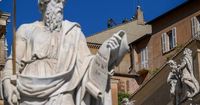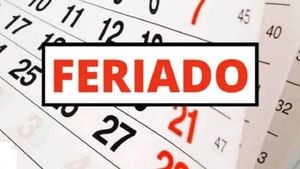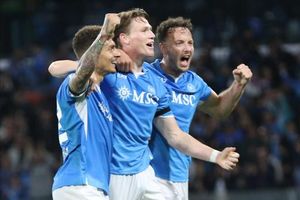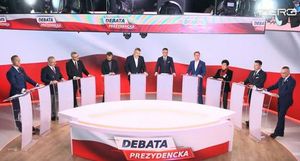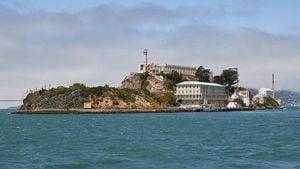On Wednesday, May 7, 2025, the eyes of the world turned to Vatican City as 133 Roman Catholic cardinals commenced the conclave to elect the 267th pope, following the death of Pope Francis on April 21. This significant event marks a pivotal moment for the Catholic Church, which is navigating complex challenges both within its ranks and in the broader world.
The conclave kicked off with a traditional Holy Mass for the Election of the Pope (Pro Eligendo Romano Pontefice) at St. Peter's Basilica at 10:00 a.m. local time. Following the mass, the cardinals gathered for a prayer session at the Pauline Chapel, invoking the guidance of the Holy Spirit as they prepared to cast their votes in the Sistine Chapel.
Giovanni Battista Re, the dean of the College of Cardinals, emphasized the gravity of their task, urging the cardinals to set aside personal interests in favor of unity and the greater good of the Church. "We are here to invoke the help of the Holy Spirit, to implore his light and strength so that the pope elected may be he whom the church and humanity need at this difficult and complex turning point in history," Re stated.
Pope Francis, who led the Church for 12 years, had appointed approximately 80% of the cardinals participating in the conclave, creating a unique and diverse assembly. This conclave is notable for being the first in history where Europeans constitute less than half of the voting cardinals. The electors hail from 70 different countries, reflecting the global nature of the Catholic faith.
The conclave process is steeped in tradition and secrecy, with cardinals taking an oath to maintain confidentiality regarding all matters related to the election. This oath, established by Pope John Paul II's apostolic constitution, "Universi Dominici Gregis," prohibits the use of any recording devices and binds the cardinals to silence until a new pope is elected.
The voting process can be unpredictable, as there is no set time limit for the conclave. The first ballots were set to be cast on Wednesday evening, with subsequent votes occurring four times daily until a new leader is selected. Black smoke will indicate that no decision has been reached, while white smoke will signal the election of the new pope.
As the cardinals entered the Sistine Chapel, they were reminded of the challenges facing the Church, particularly in light of the ongoing sexual abuse scandals and the growing secularism that has led to a decline in church attendance. The new pope will need to address these issues while also navigating the diverse and often conflicting views within the College of Cardinals.
Among the leading candidates for the papacy are Cardinal Pietro Parolin, the Vatican's secretary of state, who is seen as a potential bridge between moderate and more liberal factions. Cardinal Luis Antonio Tagle of the Philippines, often referred to as the "Asian Francis," is also a strong contender, known for his advocacy for marginalized communities. Additionally, Pierbattista Pizzaballa, the Latin Patriarch of Jerusalem, is viewed as a significant candidate due to his experience in a politically tense region.
As the conclave unfolds, speculation abounds regarding the potential direction of the Church under the new pope. With progressive factions pushing for greater inclusion and reform, and conservative elements advocating for a return to traditional values, the outcome of this conclave could have lasting implications for the future of the Catholic Church.
In the days leading up to the conclave, the atmosphere in the Vatican was charged with anticipation. Cardinal Anders Arborelius of Sweden noted the unfamiliarity among the cardinals, stating that many were still getting to know each other in what felt like "theological speed-dating sessions." This sense of uncertainty could lead to a more fractious voting process than in previous conclaves.
As the cardinals cast their votes, the world awaits the signal from the chimney atop the Sistine Chapel. Will it be black smoke, indicating a continued search for a leader, or white smoke, heralding the arrival of a new pope? The outcome remains uncertain, but the implications are profound for the 1.4 billion Catholics around the globe.
In the run-up to the conclave, interest in the election has surged, partly fueled by the recent success of the film "Conclave," which dramatizes the election of a new pope. With the Church at a crossroads, the new pontiff will have the monumental task of guiding the faithful through a period of significant change and challenge.
As the cardinals continue their deliberations, many are hopeful that the next pope will embody the spirit of inclusivity and compassion that characterized Pope Francis's tenure. However, the diverse backgrounds and perspectives of the cardinals make it difficult to predict the outcome, raising the stakes for this historic election.
The world watches closely, eager to see who will emerge as the new leader of the Catholic Church and how they will address the pressing issues facing the faith in an increasingly complex world.
